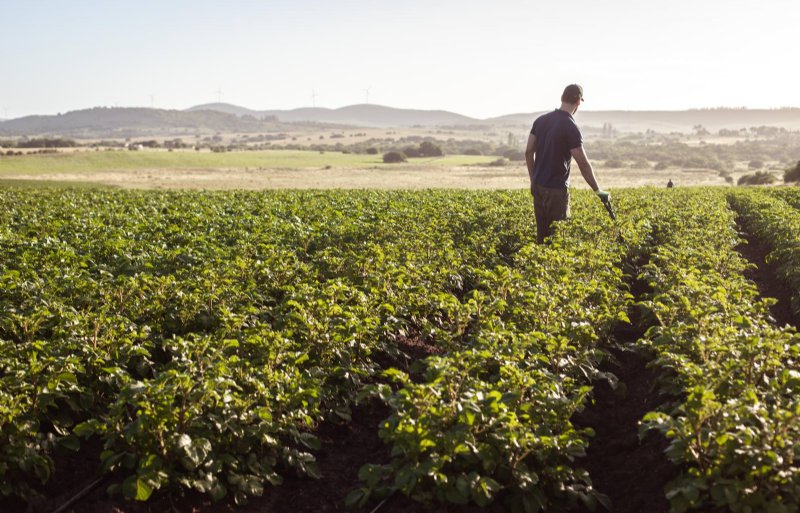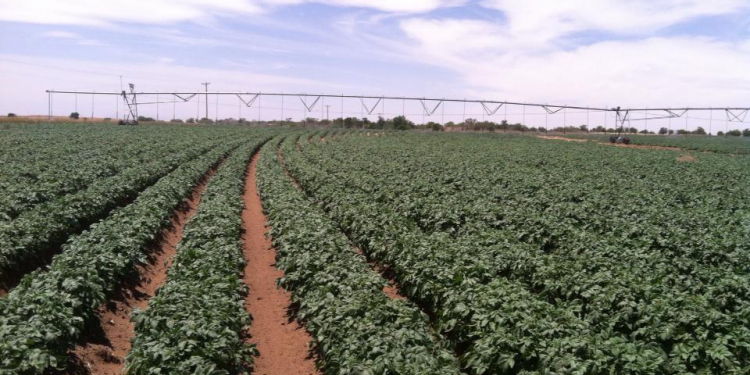The new generation of potato varieties performs better and better under extreme climate conditions such as drought. Potato breeder HZPC reports this.

In addition to the new regular varieties, the first trials with hybrid varieties from seed are also showing good performance. These tests by HZPC have been carried out in Sub-Saharan Africa, among other places. In its most recent sustainability report, the potato breeding company in Joure, Friesland, writes that the hybrid varieties can make a significant contribution to global food security, especially in regions where hunger is a real threat.
HZPC reports that the company is fully committed to developing robust and sustainable varieties. These are the potato varieties that perform maximum under extreme conditions such as heat, drought and salinity and also offer resistance to diseases. Good genetics help to minimize the ecological footprint of cultivation, according to the breeding company. In addition, the future varieties use less water, less crop protection agents and less fertilizer.

New breeding techniques
In its own research center, HZPC uses new breeding techniques such as marker technology and hybridization to develop new varieties. The company also points out in the sustainability report that seed of hybrid varieties can be of great benefit to potato distribution and potato growing regions such as Sub-Saharan Africa and Central Asia with limited infrastructure and often with high phytosanitary requirements.
In response, HZPC director Gerard Backx states that current climate developments, especially in poorer countries, have a negative effect on the availability of healthy and affordable food. ‘We expect a lot from our latest innovations, so that we can further future-proof our chain. This also applies to countries where a good result must be achieved under challenging climatic conditions.’
High-tech breeding techniques for a green revolution
To get to where we want to be – that sustainable future without hunger – we are fully committed to innovative methods to improve and accelerate the breeding of potato varieties. We have recently made great progress with new high-tech breeding techniques such as marker technology and hybridization. The latter, whereby potatoes can be grown from seed, offers a future for food security. The omens for this new form of breeding are very positive. It makes it possible for us to grow high-quality potato varieties much faster.
It also has environmental benefits: seed is easier to transport than seed potatoes, with less CO 2emissions as a result. In addition, the hybrid varieties will eventually require fewer crop protection agents because it is easier to cross-breed resistance genes into these varieties. If the developments remain favourable, we expect to be able to enter the market from 2025.
Finding the Balance
The developments with regard to disease resistance are also moving at lightning speed. By 2030, three quarters of our varieties that we introduce must be resistant to the two most important potato diseases. And we are positive that we are achieving this goal. However, it will still take a few years before resistant varieties are commercially available. EU laws and regulations with regard to reducing or even banning residues could potentially anticipate this development. This can have a major impact on the food supply and the environment. We therefore look for connections with all stakeholders and links in the chain in order to find the balance between people, planet and profit.
Together with our growers and customers, we want to make cultivation future-proof. Our biggest contribution is to supply seed potatoes with the right genetics. But we also see a role for ourselves as a facilitator in which we share knowledge and establish connections with multiple chain partners. In order to develop a vision on the major issues ahead and to strive for improvement. That’s how we keep growing. Every day again.








